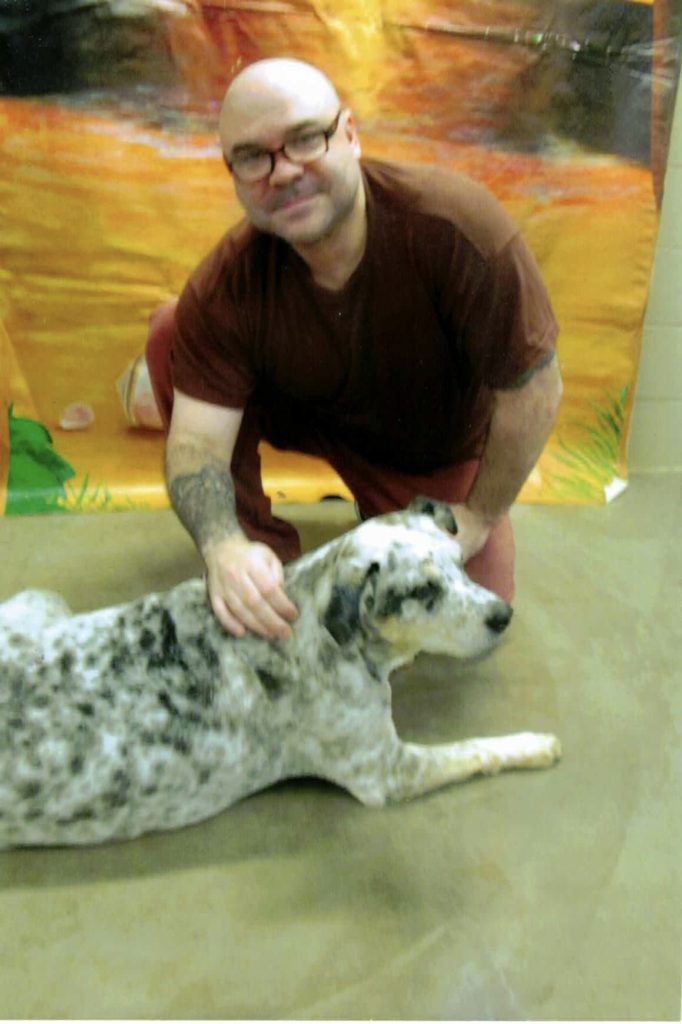When I was a kid, most of my friends could be found in front of a TV set or spending hour after hour trying to save Princess Peach from King Koopa. Not me. I actually had to share a TV with two older sisters who basically dominated the remote. When we came home from school at three o’clock it was General Hospital until four and then we watched the Oprah Winfrey Show. At five, my parents came home from work: Dad would watch the news until six – we’d all break for dinner – then Mom took over at seven to watch her telenovelas. Nice and orderly. But it was their order, not mine.
I mostly had a share in their experiences. In fact, my world consisted mostly of shared goods: I slept in a bed formerly owned by an older cousin before she got married and moved to Texas; my clothes were handed down to me by uncles who’d outgrown them decades before; even my existence was a spinoff from the drama of my sisters – as I was mostly known for being their little brother. Don’t get me wrong, I’ve never felt unloved or cheated. Summers were spent taking day trips to the Jersey Shore or weekends at a campground in the Amish country. It’s just that my parents didn’t believe in spending unnecessarily. Dad drove a car until the wheels came off, and Mom never let a good department store sale pass without taking advantage. I learned early that if I wanted extra I had to pay for it myself. I had to hustle for the pennies to be put into my “whatever” fund.
I still remember the first quarter I ever earned on my own: ten years old, swatting flies for Mrs. Duffy next door. I spent hours in her sweltering kitchen smashing bugs and wiping their guts off the surface. Looking back, I know she didn’t need me to do this – but she entertained my adorable business acumen and rewarded me with a couple of coins. I wiped the sweat off my brow and ran to the corner store so that I could spend my fortune on a game of Joust or Double Dribble. It wasn’t much, but I bought and paid for my own happiness… which counted for a lot.
I had the same jobs as other kids. Ed’s Pizza House was at the corner of my block. We weren’t related, but I did use the brand connection to talk my way into the occasional gig folding pizza boxes at a nickel per box so I could enjoy some mozzarella cheese fries and a scoop or two of butter pecan ice cream. I washed cars in the summer and shoveled snow in the winter. I was cheap labor, looking only to make a few bucks for the cafeteria vending machines at school or to spend at a local roller rink – which meant I was paying to suffer my bumps and bruises. At the time I didn’t know how apt a metaphor for life that was.
Now, no one really expects a preteen to have the best work ethic, but something happens during puberty that makes failure to be responsible akin to high crimes and misdemeanors. If my bed was unmade, then I was lazy. If I started a job and didn’t finish it in time, then I wasn’t committed. But my favorite insult came from teachers who called me a slacker because I didn’t turn in my homework. How many kids really were gung ho about homework?! Maybe they’re the weird ones. It seemed like one day I was lauded for working to gain a sense of independence and individual uniqueness – however minuscule – and then the next day I was being criticized for not being like everyone else and thinking I was going to have my parents to rely on forever. If my childhood was easy and breezy, my teenage years were pressure-filled with great expectations that I didn’t choose for myself.
There were probably plenty of external factors causing this buildup of emotional weight, but by the time I was eighteen I was burned out. I still hadn’t graduated from high school and I’d been slaving away at several factories for part-time pay just to buy clothes in my attempt to be the same as friends who felt none of the same pressures. So, I did the obvious: I dropped out, took the test for my GED, and went on the hunt for a 9-to-5 so I could get on with my life already.
My brother-in-law worked at an automotive remanufacturing plant and he convinced his foreman to hire me as a grunt. He thought this was “hooking me up”. But, in addition to scrubbing down conveyor belts that were soiled with old engine gunk, I had to move rusted engine blocks from a junk pile in the open air to a sandblaster near a 500° furnace. It was during the dead of winter, so I had a choice between bundling up in an insulated jumpsuit so I’d be warm outside, but sweat indoors; or wear my plain Dickies so I could be somewhat comfortable inside, but freeze my stones outside. Not exactly the kind of love I expected to receive from family. I didn’t want to let him down, so I woke up at 6am to prepare for the long bus ride from the northeast corner of the city to the southwest. I’d come home well after seven – grease under my fingernails, smelling of stale sweat, and sometimes too tired to take a shower. I bought into the idea that I was an adult; duty came first and comfort was an unaffordable luxury.
Things came to a head one morning when, during my commute in the middle of a blizzard, the bus driver informed us that several roads leading to the auto mall were blocked. We were being rerouted, bypassing some stops on the normal route. I took it as a sign from God: I wasn’t supposed to be going to work that day. So I got off the bus and looked for the nearest payphone to call-off due to the weather. I was told I was still on probation and that if I didn’t come in I’d be fired. Sure, now I can look back with the maturity of a 40-something and realize that other grunts had made it to work so I could’ve done the same – but at eighteen I wasn’t very mature. I mean, if I was going to be fired and have to put up with my brother-in-law’s criticism – all for minimum wage – then I was going to preserve what dignity I could. I told my supervisor to have my last check mailed to me. He said he’d deduct postage.
This was the rollercoaster of my young work life.
Over the next year I had a few more menial jobs but nothing lasted more than a few weeks. I hated it. I hated the work, I hated the pay, I hated the supervisors who thought I owed them for doing me a favor, I hated the broken lifers who had been showing up for years but were barely making more than minimum wage. It felt abusive. What I hated most was my family lamenting the wasted potential – but what potential was there to be discovered in a field of widgets? I decided to look for a graveyard shift so I could use the time to collect my thoughts. My father told me I’d hate the hours. My sisters said it wouldn’t leave me any time for a social life. My mother wasn’t a fan of the idea either, but she was the one who suggested I go see La Santera for guidance.
Doña Mary was from the border between Haiti and the Dominican Republic. What country she hailed from depended on who her client was. She spoke Spanish and French with equal fluency; and her English, while heavily accented, was quite good – which was necessary with me, since my Spanish was poor and my French, despite two years of study in high school, was practically nonexistent. She was a kind lady who took in runaways and others who were hiding out, on the condition that they make themselves scarce when she was entertaining clients. The sign that business was in session: a large bronze eagle that she kept in the living room window. If it was covered, than it meant the spirits were asleep; but, if uncovered, then it meant the bird was in flight and in search of a patron saint.
I wasn’t a believer in the superstitious – or maybe I felt abandoned by a God that everyone else seemed to think was so great. Whatever the case, I figured Doña Mary and her lessor gods couldn’t do any worse. So I made my appointment. When I showed up, Doña Mary greeted me with all the affection of an auntie who hadn’t seen her nephew in a dog’s age. She put a teakettle on to boil and asked me: Shall we send the eagle in flight?
Doña Mary knew my skepticism, something she could’ve learned from my mother, or how generally most people are skeptics of the supernatural. She asked only that I not be offensive. We talked, and while much of our conversation was a counseling session – be mindful of bad influences and such – there were some spooky parts that gave me the heebie-jeebies.
She lit a large cigar and a thick cloud of smoke undulated around her head. As she rang a tiny bell, she poured tea in her cup and mine. After I took a sip, she took the cup from me and blew smoke over the rim. I couldn’t see it, but to her my life was laid bare.
That I had recently started courting an older woman could’ve been a good guess, and there was a 50/50 chance that she was looking for a fill-in father for her young son. But that she described her as con cabello ni claro ni oscuro y con una lengua gruesa, even my flawed Spanish understood: ‘neither blond nor brunette, with a thick tongue’. Details too particular – especially since my lady friend, a redheaded transplant from the Ukraine, wasn’t from the neighborhood.
At the end of the session, she told me she’d mixed a potion for me to pour over myself after bathing. She said: “Let it dry on your skin, like a coat of armor. The scent will keep the angels and the saints around you.” The last thing she gave to me was a small pouch that I was to wear around my neck. She told me that faith is what keeps us connected to our guardian spirits. She asked me to have faith, to believe that the contents of the pouch were the seven tools of Joseph and a prayer to the Saint; that, if I believed, then there was no need to look inside the bag, as it would break the spell. She told me that I would find the job that I was looking for and, that after having found it, I was to go to a high place and throw the blessed pouch behind me and walk away from it.
Not having faith wasn’t helping, so I figured having some couldn’t hurt.
My focus was on any job offering third shift employment. I looked into cleaning operations that worked overnight in the downtown business offices, but got rejected. I applied with mass transit for any overnight gigs in need of a grunt who would get dirty, but I never got a called back. Then I found Simkar Lighting tucked in a wooded area beside an abandoned train yard. I walked in and asked to speak to a manager. I introduced myself and asked if they were hiring, and told them I was interested in a night shift position. I was introduced to the plant manager who told me, as luck would have it, they were indeed hiring and had a few openings on the third shift.
His name was Juan Acevedo and he interviewed me on the spot. I was confident that I could present myself well; I’ve always had the knack – which can be great when someone just accepted the brilliance before them. But to someone who had been around the block a few times, my act was paper thin. Maybe Mr. Acevedo saw himself in me: young, smart – maybe too smart – wanting much, but offering little. He called me out on my deflection, as he put it, and gave me some advice: “Only the rich can afford to start at the top.”
I wasn’t expecting – or prepared for – a drug test, but, after collecting a urine sample, he told me if I was clean I would get the midnight to 8am shift. A few days later, when Mr. Acevedo called, I seriously thought Doña Mary’s talisman had worked.
After a week of work, I still hadn’t gotten around to discarding the pouch Doña Mary had given to me. It had been a month since our meeting and I had transitioned from wearing it around my neck to just keeping it in my jacket pocket at all times. I figured I’d gotten the job, so why not keep the bag as a good luck charm; maybe I’d turn it into a key chain or something. But, first… I wanted to see what was in the bag.
I knew I was doing something wrong because I locked myself in my room as if I didn’t want anyone to know. The bag was cinched shut with a small knot that I had to work at it with a paperclip to loosen. When I poured the contents of the bag onto the cover of my notebook it was anticlimactic. Doña Mary wasn’t lying. In the bag were seven tiny tools that looked like they belonged with a Monopoly set. There was also a prayer printed on paper and addressed to Saint Joseph. At the bottom of the bag was a gray powder that looked like graphite. I’m not sure what I was expecting to find, but there was no immediate rumbling from the heavens; I was not struck by lightning. So I went about my daily routine as if there was no cosmic sinkhole about to swallow me up.
I didn’t tell my family about my curiosity. In fact, that night, as my mom was driving me to work, I lied and told her that I had done as instructed and thrown the pouch over a bridge. “Good,” she said, “because we don’t mess with things we don’t understand.” Imagine her shock – and my chagrin – when my supervisor was waiting at the front gate to let me know that my urine sample came back positive for drug use and that my employment had been terminated.
A quarter century has passed since that day. I should have expected a drug test to reveal my drug use, so maybe the mystical mumbo-jumbo was just an odd coincidence. But maybe Doña Mary’s charms were in full effect and my lack of respect earned me a god smack. To this day, I’m not any kind of vigilant observer of the supernatural. However, because of the questionable timing of my dismissal from a low-wage job in a dusty factory that no one could find on a map – that I only discovered by accident – I now have a more respectful reservation for the unseen but potentially ever-present





No Comments